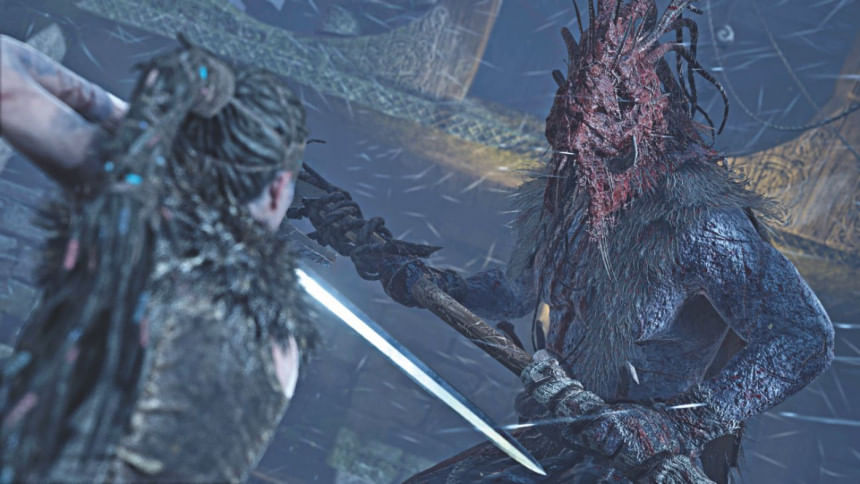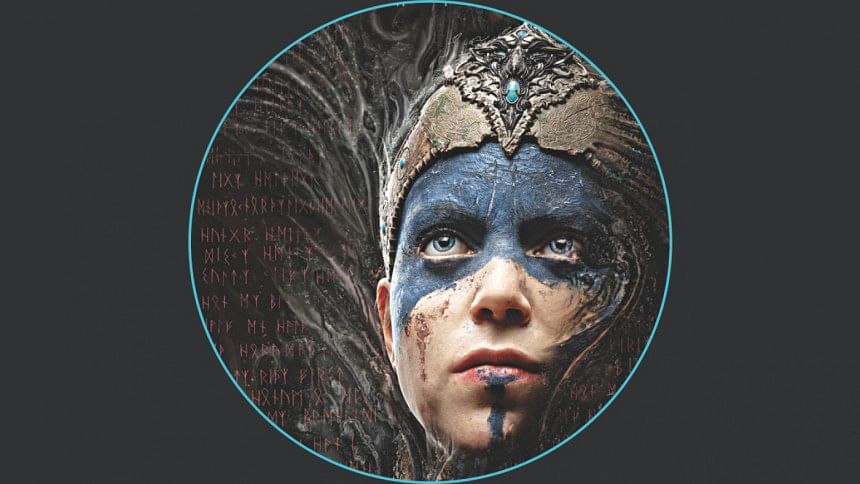Innovative, Immersive (and Inexpensive)

Developer: Ninja Theory
Publisher: Ninja Theory
Engine: Unreal Engine 4
Platforms: PC, PS4
Release Date: August 8, 2017
Based on a Celtic setting and developed by Ninja Theory – the team behind Heavenly Sword, DmC and Enslaved – Hellblade might seem like a generic hack-and-slash title but there is so much more to the game than meets the eye.
Hellblade tells the unique story of Senua, a Celtic warrior who suffers from severe psychosis which she inherited from her mother, Galena. Her condition is worsened by the abuse she faced from her father, Zynbel and the death of her lover, Dillion. Senua sets out on an imaginary quest to confront the Norse goddess, Hela and convince her to revive Dillion from the dead.
The gameplay of Hellblade mostly consists of puzzles that the gamers must solve using Senua's ability to "focus". The game also offers occasional sword-fighting set-pieces every now and then. Senua's psychosis and her consequent ability to perceive her surroundings differently are what makes the puzzle sections interesting. The combat, though simple, can be extremely satisfying. The game has a unique mechanic called "Permadeath". Every time Senua dies, a black rot starts spreading across her body and if the rot reaches Senua's head, the game gets reset and all progress is lost.
Unlike Ninja Theory's previous titles, Hellblade does not have a publisher and the game is distributed over digital media only. The development team consisted of only 20 people. However, these do not seem to take anything away from the game. The gorgeous visuals can easily be compared with any next-gen AAA title. The protagonist, Senua, is portrayed by Melina Juergens who is also the video editor for Ninja Theory and not a professional actress. Surprisingly, she manages to deliver quite a heartwarming performance. The animations, especially the facial animations, are probably one of the best I have ever witnessed in a game.

Psychosis is a very sensitive and an almost taboo topic. It is not addressed that often in any media. Ninja Theory decided to be as meticulous as possible in their depiction of the topic. They consulted with psychology professors from University of Cambridge as well as a few patients of psychosis to have a deeper understanding of the condition. The findings have been translated quite accurately into the game, and more specifically into the puzzle sections.
Many patients of psychosis are known to hear multiple voices in their heads. Ninja Theory took inspiration from this while designing the sound for Hellblade. The protagonist, Senua, also hears multiple voices which continuously taunt and discourage her while some of the voices encourage her and even advise her on her quest. Hellblade makes use of binaural audio – a recording technique where the same audio is recorded using two microphones to create the illusion of a three-dimensional space. The sound design of the game enriches the experience significantly and is best experienced through headphones.
Despite having so many positives, Hellblade does have some inexcusable flaws. The rather short campaign of the game consists of long and tedious walking sections without any puzzles or enemies. The combat tends to get repetitive near the end of the game especially because of the lack of combos and special moves. Fighting multiple enemies at once can be a chore, thanks to the extremely rigid lock-on system. The ending of the game, while very creative, is not satisfying at all.
Hellblade is a beautiful, fresh and immersive experience and priced at only $30, it is a must buy. Hopefully, Hellblade will encourage more independent developers to start developing AAA quality games.
Nony Khondaker is an introvert who complements his non-existent social life with video games, Netflix and a whole lot of ice-cream. Send him memes and cat videos to cheer him up at fb.com/NonyKhondaker

 For all latest news, follow The Daily Star's Google News channel.
For all latest news, follow The Daily Star's Google News channel. 



Comments